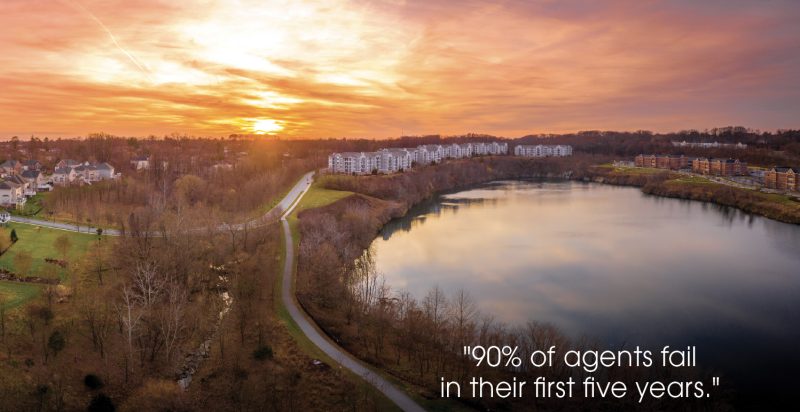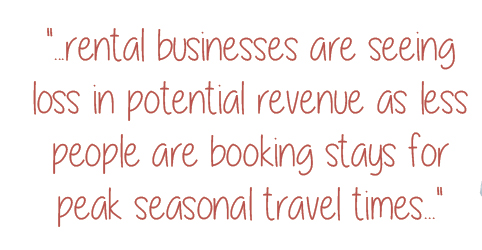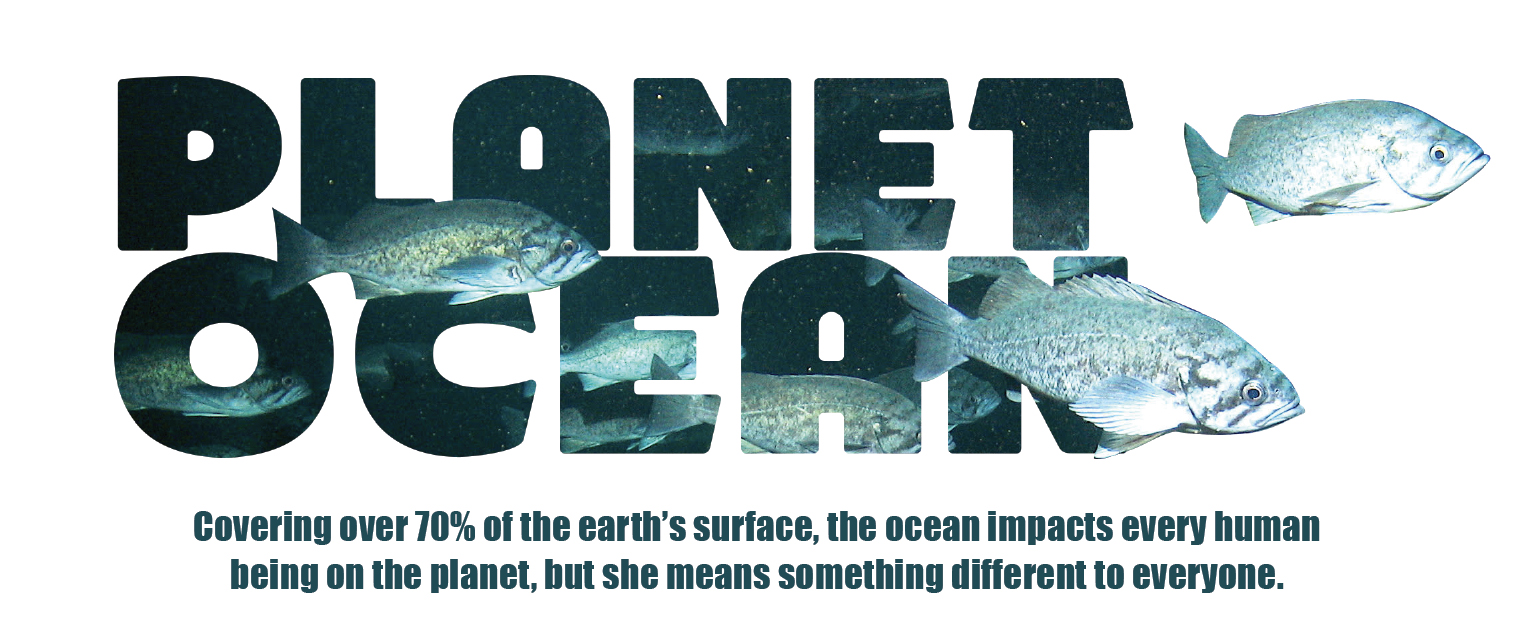Watch a never-before-seen video of the “Family Office” panel at the 2019 NAWRB Conference. Panelists Wendy Craft, Chief of Staff at Fulcrum Equities, LLC; Cynthia French Blanchard, President of Anthem Vault, Inc., AnthemGold, Inc., and Hercules, SEZC; Cindy Brittain, International Private Client Tax Partner at Katten Muchin Rosenman LLP; and Brian DeLucia, Managing Partner of Arrivato LLC, discussed the latest developments and trends in Family Offices, including intergenerational wealth transfer and tax issues. Watch the video below!

Know an Incredible Woman Preserving the
Quality of Life During COVID-19?
Submit your story today!
Read More

Consulting & Branding Opportunities
Grant your business access to insider,
proven knowledge to improve the quality of your procured
services and maximize business performance.

If you need D&I
Contact Us!
A Team Focused on Bring Diversity and Inclusion to Every Level
Learn More

#1 Top Real Estate Influencer
Desiree Patno
Diversity & Inclusion, Quality of Life, Know the Rules of the Game ®
Your Next Event
Grow Your Business
NAWRB: An SBA Resource
NAWRB is listed as a women-owned business resource for the SBA.
Check It Out
NAWRB Aging Population
Help Protect Elders
from Financial Abuse
Over $36.5 billion a year is lost annually in the U.S.
Prevent Financial Abuse

Women's Homeownership:
Dream. Stability. Sanctuary.
Life often presents us
with unplanned disruptions.

AI Technology
with
a Human Touch
Is
The Perfect Balance


NAWRB Women's Global Resource Center
A women’s depository for vendors & clients to grow their diverse spend & increase women’s employment at all levels within the housing ecosystem.

Author Archives: NAWRB
Know the Rules of the GameⓇ Podcast: What are Her Rules?
Welcome to Know the Rules of the GameⓇ Podcast: What are Her Rules? with your host Desiree Patno, CEO & President of Women in the Housing & Real Estate Ecosystem (NAWRB) and Special Guest Charmane Sellers, Honorable Veteran of the United States Air Force, and the President and CEO of ALEON Properties, Inc. As a minority-, veteran- and women-owned small business in Commercial Construction, Charmane shares her professional and personal experiences that have brought her where she is today. Listen: https://www.nawrb.com/
Keeping the Focus about the George Floyd Protests Across the United States
This past week, anger has boiled over in America, and across the globe, over systemic racism that permeates the nation’s structures of authority and seeing instances of police brutality recorded on video. Just in the last few months, there have been instances of gratuitous violence against African Americans, such as the murder of Ahmaud Arbery who was gunned down by two white men while jogging in Georgia, and of Breonna Taylor, a 26-year-old EMT, who was in her apartment in Louisville, Kentucky, when police burst through and shot her eight times.
A Third of Americans Report Anxiety or Depression Symptoms During Pandemic
According to a recent Census Bureau survey, a third of American adults report symptoms of clinical anxiety or depression amid the coronavirus outbreak, which highlights the psychological toll the pandemic has had on the mental health of many individuals. Data shows that out of every 100 American adults, 34 show symptoms of anxiety, depression or both; 10 show symptoms of anxiety alone; and 4 show symptoms of depression alone.
Know the Rules of the Game Ⓡ Podcast for Never Stop Learning
Tune in on May 27th at 8 AM PST for Know the Rules of the GameⓇ Podcast for Never Stop Learning with your host Desiree Patno, CEO & President of Women in the Housing & Real Estate Ecosystem (NAWRB) & Special Guest Vanessa Montanez, Sales & Business Development Manager for the National Specialized Sales & Strategics Markets, US Bank Home Mortgages: https://www.nawrb.com/
World Day for Cultural Diversity for Dialogue & Development 2020
Today marks World Day for Cultural Diversity for Dialogue and Development, a United Nations-sanctioned international holiday. Held every year on 21 May, the World Day for Cultural Diversity for Dialogue and Development raises awareness of the wealth of world cultures, the opportunities that cultural diversity brings and the essential role of intercultural dialogue for achieving peace and sustainable development.
NDILC Women Leadership Principle #6: Speak Out with Chairwoman Desiree Patno
NAWRB’s Diversity & Inclusion Leadership Council (NDILC) recently introduced their Ten Women Leadership Principles, which they collectively created to help women in the workforce become more effective leaders at any stage of their careers, and empower other women to reach their full potential. This is a universal guide for all levels of leadership, and any woman can benefit from applying them. This week, NDILC presents the sixth principle, “Speak Out,” shared with a personal story by NDILC Chairwoman Desiree Patno, CEO & President of NAWRB.
Three Ways to Increase Your Longevity in Real Estate
The real estate industry can be difficult to navigate for new agents. The success rate is not very high with about 90 percent of agents failing in their first five years. That means nine out of every 10 new agents can expect to fail in the industry. A part of being a successful real estate agent simply comes down to luck, and no one can control for that, but there are some strategies newcomers can use to increase their chances of making a long-lasting career in this exciting and ever-changing industry.
With three decades of experience leaving my mark in diverse real estate sectors, selling over 6,000 properties, providing relocation services for major Fortune 100 companies, and connecting entrepreneurs to billions of dollars in business resources, Desirée Patno, CEO & President of NAWRB, shares a few pieces of advice she would give her younger self about thriving in the real estate and housing ecosystem. Below are the top three tips she thinks any nascent real estate agent would benefit from knowing to help them fulfill their potential and guarantee their place among the successful 10 percent.

1. Educate Yourself & Never Think You Know Everything
Real estate is more complicated than a glamorous sales job, and it’s helpful to educate yourself—or better yet, earn a four-year college degree—in other fields, including business economics, construction, finance and law. Each of these topics are relevant to selling and buying a property, so it’s pivotal to have foundational knowledge in each of these fields to help your job performance.
In addition, it is useful to plan for disruptions that might arise in the industry, such as new laws and tax codes, novel technology developments and upcoming market trends. Technology can assist the industry in property management, application processing and data synthesizing so that agents and brokers can focus on connecting with clients and helping them with the emotional process of buying or selling a home. Find out how you can leverage these new developments now so that you can stay ahead of the competition.
Artificial Intelligence (AI) and Blockchain, for example, are emerging technologies that are impacting the way real estate businesses operate and interact with their customers and clients. AI can be a helpful tool that can make everyday tasks more efficient and provide assistance to clients at a moment’s notice rather than a replacement for the agent themselves. It’s important to remember that AI is not without flaws. Some worry that AI creators and users will include their own biases into new technology, causing more roadblocks and harm to minorities.
 Innovators are working to make AI great at problem-solving, automatic processing, data collecting and so on, but being an agent or broker requires skills AI does not have: the expert advice of a professional who has worked in the field for over 20 years, the ethics to makes sure AI is used responsibly, the ability to listen and understand a client’s needs, the intuition to know when a property is a good fit or deal, and the empathy to sympathize and provide moral support when homebuyers get cold feet or things don’t go according to plan.
Innovators are working to make AI great at problem-solving, automatic processing, data collecting and so on, but being an agent or broker requires skills AI does not have: the expert advice of a professional who has worked in the field for over 20 years, the ethics to makes sure AI is used responsibly, the ability to listen and understand a client’s needs, the intuition to know when a property is a good fit or deal, and the empathy to sympathize and provide moral support when homebuyers get cold feet or things don’t go according to plan.
Blockchain will make property data more secure and accessible to the public, and it will make transactions efficient and safe. This increases accessibility of data integral to home buying and selling, and ensures independent industries are held accountable for sound business practices. Blockchain will also drive an increase in smart contracts, which allows contracts, escrows, property records and more to be completed and financial transactions to occur without the need of title companies or attorneys.
Forbes analysts predict that home buying and home selling might become as easy as using a shopping cart on a website. Blockchain has the capacity to ensure the homebuyer receives the deed or title, while the seller takes home the profit through cryptocurrency. Both AI and Blockchain are merely helpful tools for helping agents and brokerages serve their clients with the utmost care and efficiency.
An integral part of learning is always asking questions. When you are tasked with performing any task in the line of business, always ask why you are doing it. In doing so, you will understand the logic and purpose behind the things you do. As a result, you will develop a better grasp on the real estate business system in general and contribute your own insights on how to improve it.

2. Act & Prepare as a Business Owner
You are not only a real estate agent but an entrepreneur who owns their own business. Real estate is a business of sorts, and it is important to act like a business owner to ensure your future success. In fact, 86 percent of real estate agents are independent contractors, according to the National Association of Realtors 2016 Member Profile, so the law and the Internal Revenue Service (IRS) consider you a business owner and you will be treated as such. You have sole responsibility for your business interests, but that does not mean you have to do it by yourself.
Part of being a successful business owner is being a well-versed planner to juggle your multiple responsibilities as you are accountable for sales, expenses and marketing. Build a business plan and a great team that can help you carry out tasks and share in opportunities. You won’t be able to do this alone, so make sure you have people you trust to carry your business when needed.
Further educate yourself as a business owner and independent contractor by utilizing resources from the U.S. Small Business Administration (SBA) and the IRS. Women in the Housing & Real Estate Ecosystem (NAWRB) is proud to be one of only 11 of the SBA’s Partner Resources for Women-Owned Small Businesses, and we provide countless resources and consulting services to help you achieve long-term success.
3. Passion and Social Impact Ensures Longevity
Real estate is more than just putting up a sign and selling a house; in other words, it’s not just a glamorous sales job. A lot of the real estate business boils down to human interaction. You are dealing with someone’s sanctuary, foundation and investment. To an individual or family, a home is a place of personal freedom, security and comfort in an impacting world, and a source of financial stability.
Real estate agents are still an integral part of the home buying process as a dependable source of knowledge, advice and emotional support for clients during this important decision. Moreover, they have the invaluable tool of building relationships and empathy, which are pivotal to success in the industry. Agents are adept at handling hiccups in the buying process, such as when a client suffers a traumatic loss, loses their job or gets cold feet. As human beings, they can relate to these troubles and provide practical solutions. This is what no technology development can ever replace.
There might be moments when things do not go as planned or you make a mistake, but don’t worry because it is all part of the process. Nothing is ever perfect and you can’t please everyone, so remember to acknowledge your strengths and weaknesses, and find out what makes you stand out among the crowd. In return, clients and peers will respect your authenticity. Longevity is endured by those who are passionate, care for others and their needs, and create social impact.
* See this Article and many more in it’s original publication at https://issuu.com/nawrb/docs/nawrb_mag_vol9_issue1
Planet Ocean
Covering over 70% of the earth’s surface, the ocean impacts every human being on the planet, but she means something different to everyone.
The ocean fills the spirit of many, bringing peace and wonder with its meditative waves and unending mystery below the surface. She is life sustaining, providing oxygen for every other breath we take. She drives an economy, employing thousands through the fishing, transportation, hospitality, and restaurant industries. She shields us against climate change, absorbing 30% of carbon dioxide and regulating global weather patterns. And she offers promise to health and medical fields with compounds found in corals and sponges for treatments in cancer, arthritis, Alzheimer’s and other diseases. There are scores of books written about the human-water connection, or as Walter J Nichols calls it, the “Blue Mind”. Take a moment to consider what the ocean means to you.
 When you have an opportunity to take a good, long look at the ocean along the California coast, you will very likely see surfers and dolphins riding waves, whale spouts or breaches, and ships on the horizon. What you do not see are the fish and deep sea corals that are the very foundation of a healthy ocean, and feeding ground for the whales, dolphins and sea birds. Nor do you see the towering kelp forests off the coast that are home to over 1,000 species of animals and plants, and rocky reefs that explode with marine critters from elusive sharks to the endangered black sea bass.
When you have an opportunity to take a good, long look at the ocean along the California coast, you will very likely see surfers and dolphins riding waves, whale spouts or breaches, and ships on the horizon. What you do not see are the fish and deep sea corals that are the very foundation of a healthy ocean, and feeding ground for the whales, dolphins and sea birds. Nor do you see the towering kelp forests off the coast that are home to over 1,000 species of animals and plants, and rocky reefs that explode with marine critters from elusive sharks to the endangered black sea bass.
These deep sea ecosystems have been battling many threats over the past fifty years, including irresponsible and destructive fishing practices, invasive species, and climate change. Such threats have taken a toll on the parts of the ocean you cannot see. The great news is that with California’s Marine Protected Area program, we have the policy, technology and the tools to help her recover. When you can see a problem you can solve a problem. You may not be able to dive to 300 meters, but Marine Research & Exploration (MARE) can! With our specialized robotic submarines, MARE brings that deep sea to you, as well as to those responsible for making the rules about how we use our ocean through MPAs, our blue parks.
Marine Protected Areas are similar to national parks and forests; they are designated areas in the ocean that are monitored and managed to protect fish and invertebrates like octopus and lobster, and restore valuable habitats, like corals. With minimal human disruption through limited or restricted activity, such as fishing, marine life and habitat living in the MPAs are expected to revive and thrive. We know they are successful when we see a rebound in fish abundance and other marine critters both inside the MPA boundaries, and especially beyond the invisible boundary lines. Many recent scientific studies show that MPAs are working, and we are increasingly seeing more, and bigger, fish. For instance, a 2012 study off the coast of Santa Barbara found that lobsters were more abundant and larger within the designated refuge. In another study, MARE was able to show a 270% increase in fish inside the reserve over a decade of protection; this increase was seen outside of the MPA, as well, which made the fishing community very happy.

“People protect what they love, they love what they understand and they understand what they are taught.” – Jacques-Yves Cousteau
California’s blue parks are a powerful solution to bring our ocean back to her previous health. A recent study in the journal, Nature, indicates “MPAs represent a necessary and powerful recovery wedge across multiple components of the ocean ecosystem.” This idea is catching on: in 2000, only 0.9% of the ocean was protected, but MPAs now cover 7.4%. Scientists recommend that 30% protected by 2030 are the magic numbers to aim for in order to sustain our ocean’s health. With the current rate of protections like MPAs year over year, this is an achievable goal.
MPAs are just one tool in the toolbox to protect our ocean. Anyone and everyone can help ocean conservation. A dump truck’s worth of plastic enters the ocean each minute, 8 million tons annually. Researchers have predicted there will be more plastic than fish on the ocean by 2050. On the consumer side, we can all bring more intention to eliminating the need for single use plastics that end up in the ocean. There is an opportunity on the innovation side to develop more sustainable alternatives, too. Purchasing power extends to food choices. With over 3 billion people depending on the ocean for their primary source of protein, the ocean’s food security is neither infinite nor invincible. The global “we” can and are depleting [it: 90 percent of the largest ocean fish, like Atlantic salmon, tuna, halibut, and swordfish are gone. Apps and sites like www.seafoodwatch.org help all of us make more informed seafood choices.
No matter how you personally use the ocean – to swim, to fish, to dive, to deliver your favorite seafood dish – a healthy ocean benefits everyone. So breathe deeply. Close your eyes and let the sound of the waves wash over you. And know that you have a vital role to play in her renaissance.
About MARE
As an earlier adopter of the MPA strategy, California has been a leader in ocean health solutions and is decades ahead of many coastal governments. Marine Research & Exploration (MARE) has been working with the state for over 16 years to monitor and document ocean health. Using proprietary marine technology, MARE brings critical information and imagery to those who govern our state waters, so that they know what to protect and why. We also show, with pictures, video and data, that MPAs have been effective in California, which benefits everyone in the state. During these unprecedented times, we appreciate all donations of time, treasure and talent to assist in the intelligent management of our oceans. To learn more, tune into our discussion on Know the Rules of the Game podcast. Thank you in advance!

 ERIN O’Toole, Director of Development at Marine, Applied Research & Exploration (MARE)
ERIN O’Toole, Director of Development at Marine, Applied Research & Exploration (MARE)
 Kellie Aamodt, Board Member of Marine Applied Research & Exploration (MARE), and Former UPS, VP of Corporate Inside Sales
Kellie Aamodt, Board Member of Marine Applied Research & Exploration (MARE), and Former UPS, VP of Corporate Inside Sales
* See this Article and many more in it’s original publication at https://issuu.com/nawrb/docs/nawrb_mag_vol9_issue1
How the Coronavirus is Affecting Short-Term Rental Business Owners and Travelers
Coronavirus disease (COVID-19) is now a global pandemic that has altered many facets of human life in the past few months, especially in the past couple of weeks, as countries are taking measures to contain the outbreak and protect the safety of their citizens. The travel industry has especially been affected as people are being forced to cancel or change their preexisting travel plans, whether international or domestic, as more countries are being labeled as high risk areas for contracting the virus.
This has taken a toll on the short-term rental business, such a Airbnb and VRBO, as short-term renters and hosts are working through solutions in response to the coronavirus-related cancellations. Individuals who have created a small business out of offering their properties as short-term renters for travelers are faced with the financial burden offering a full refund for travelers who wish to cancel their stay due to the coronavirus.
 Business owners and travelers can purchase insurance policies for unforeseen cancellations, yet very few, if any, have clauses about pandemic coverage as this situation is unprecedented. It is resulting in a substantial revenue loss for businesses who depend on the funds from renting out their properties to pay their mortgage and make other necessary payments, or as a source of passive income. In addition, many short-term rental businesses are seeing loss in potential revenue as less people are booking stays for peak seasonal travel times, including holidays, both domestically and internationally, when hosts make most of their revenue.
Business owners and travelers can purchase insurance policies for unforeseen cancellations, yet very few, if any, have clauses about pandemic coverage as this situation is unprecedented. It is resulting in a substantial revenue loss for businesses who depend on the funds from renting out their properties to pay their mortgage and make other necessary payments, or as a source of passive income. In addition, many short-term rental businesses are seeing loss in potential revenue as less people are booking stays for peak seasonal travel times, including holidays, both domestically and internationally, when hosts make most of their revenue.
On the other hand, travelers who have already booked their short-term rentals in advance for an impending trip are in the unfortunate predicament of having to cancel their plans in order to limit their chance of contracting the coronavirus or spreading it to others. Social distancing is one of the new best practices. In addition, many countries, states, and counties have limited traveling to essential travel only.
Many popular airlines such as Delta, United Airlines and JetBlue are waiving change fees to help accommodate travelers as they reassess and change their travel plans. However, those who have booked flights have most likely booked their accommodations, as well. Using Airbnb or VRBO for booking accommodation is typically a budget-friendly option for travelers on a tight budget, but these companies have their own unique cancellation policies that might differ from hotels or other mainstream options.
The following are the up-to-date cancellation policies for Airbnb and VRBO, some of the most popular short-term rental third-party websites. As of March 15, 2020, Airbnb provides the following coverage for COVID-19 under their extenuating circumstances policy:
 “Reservations made on or before March 14, 2020 for stays and Airbnb Experiences, with a check-in date between March 14, 2020 and April 14, 2020, are covered by the policy and may be cancelled before check-in. Guests who cancel will receive a full refund, and hosts can cancel without charge or impact to their Superhost status. Airbnb will refund all service fees for covered cancellations. The host’s cancellation policy will apply as usual to reservations made after March 14, 2020, and to reservations made on or before March 14, 2020 with check-in dates after April 14, 2020.”
“Reservations made on or before March 14, 2020 for stays and Airbnb Experiences, with a check-in date between March 14, 2020 and April 14, 2020, are covered by the policy and may be cancelled before check-in. Guests who cancel will receive a full refund, and hosts can cancel without charge or impact to their Superhost status. Airbnb will refund all service fees for covered cancellations. The host’s cancellation policy will apply as usual to reservations made after March 14, 2020, and to reservations made on or before March 14, 2020 with check-in dates after April 14, 2020.”
Note that reservations for stays or Airbnb Experiences that are made on or before March 14, 2020, with a check-in date after April 14, 2020, will not be covered under their extenuating circumstances policy, except if the guest or host has contracted COVID-19. Therefore, the host’s cancellation policy applies as usual. Because each host has a different cancellation policy, Airbnb recommends that travelers read the fine print before booking their stay and choosing the most flexible option.
In the event that Airbnb hosts cancel a covered reservation, the company ensures that they will not be charged, there will be no impact on their Superhost status, if they have it, and they will refund all service fees.
In response to coverage for COVID-19, VRBO makes the following comment on their website: “Vrbo® advises travelers to follow travel advice from the World Health Organization and local authorities. Refunds of payments made for vacation home rentals are based on the homeowner’s cancellation policy. If a homeowner or property manager refunds a booking due to COVID-19 (coronavirus) concerns, Vrbo will automatically refund the traveler service fee. Travelers who have purchased travel insurance should contact the insurance company for any claims processing.”
In a direct letter to homeowners, VRBO recommends that they review their cancellation policy and “consider adopting a flexible or moderate policy for the time being,” and they encourage them to offer a full refund to travelers who cancel or delay their travel plans due to the coronavirus, although neither is required. Thus, short-term renters are at the mercy of homeowners, who are also understandably worried about the costs to their business, regarding the content of their cancellation policy.
VRBO is also offering to waive cancellations so that they do not affect the ranking metrics for hosts worried that the cancellation will negatively impact their business. To waive a cancellation, hosts are required to cancel and refund their reservation in full and call customer support at their earliest convenience.
Whether you’re a short-term rental guest or a homeowner, it’s important to keep updated on the current cancellation policies of the organization through which you book a rental or rent out your space. In this time of uncertainty, the best thing we can do is be prepared for any possible scenario and make the best decision we can for the safety of ourselves and others.

* See this Article and many more in it’s original publication at https://issuu.com/nawrb/docs/nawrb_mag_vol9_issue1

 Login
Login













